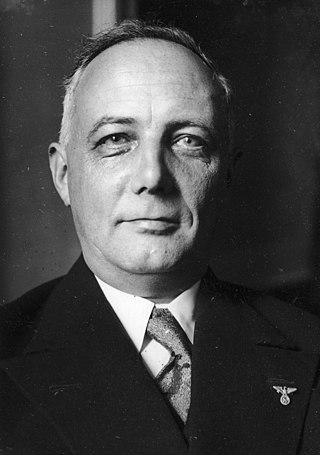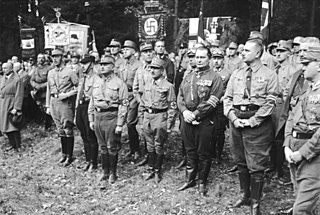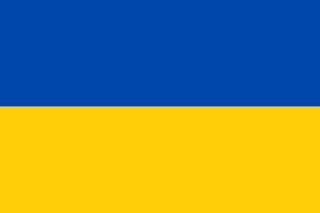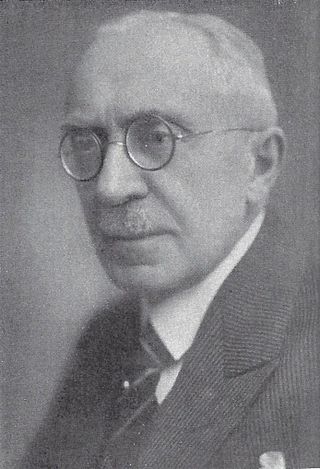
The Senate of the Free City of Danzig was the government of the Free City of Danzig from 1920 to 1939, after the Allied administration of Reginald Tower and the Danzig Staatsrat.

The Senate of the Free City of Danzig was the government of the Free City of Danzig from 1920 to 1939, after the Allied administration of Reginald Tower and the Danzig Staatsrat.


The separation of Danzig from the German Reich as a "Free City" without a vote led to the need to draft a constitution. In the Constitution of the Free City of Danzig, articles 25 to 42 detailed and regulated the role of the Senate. The Senate consisted of 7 full-time senators (including the President of the Senate, who was the chairman, and the Deputy President, the Vice Chairman) and 13 honorary senators. The full-time senators were elected from the Volkstag, and served 4-year terms. The honorary senators could serve indefinite terms. Only by a vote of no confidence from the Volkstag could honorary senators be recalled. Even with a dissolution of the Volkstag, the Senate could remain in power.
The Senate was the highest state authority. In particular, it had the tasks:
In articles 43 to 49, which detailed legislative procedures, laws had to be approved by both the Volkstag and the Senate. In the event that the Senate failed to approve bills on the day it was proposed, a referendum would be held. Constitutional amendments required a two-thirds majority. [1]
With the constitutional amendment of July 4, 1930, the number of senators was reduced to 12 (with the members of the Volkstag decreased from 120 to 72). [2]

After the establishment of the Free City of Danzig on November 15, 1920, the Constituent Assembly elected the members of the first senate on December 6. It was a bourgeois coalition between the DNVP, the DPP and the liberal Free Economic Association. The Social Democrats were the main opposition. The head of the government was Heinrich Sahm, the former mayor, who did not belong to any party. There were 4 DNVP, 4 DDP and 5 liberals in the Senate. At the second Volkstag election on November 18, 1923, the coalition continued. The First Sahm Senate continued until December 10, until it was replaced by the Second Sahm Senate. The honorary members of the First Sahm Senate, including the Deputy President, resigned on January 15, 1924.
| Status | Office | Name | Party |
|---|---|---|---|
| Full-time | President of the Senate | Heinrich Sahm | Partyless |
| Full-time | Interior Minister | Wilhelm Schümmer | Zentrum |
| Full-time | Municipal Affairs | Dr. Hubertus Schwartz | |
| Full-time | Culture | Dr. Hermann Strunk | DDP, from 1921 DPFW |
| Full-time | Finance | Ernst Volkmann (from February 8th, 1921) | Partyless |
| Full-time | Public Works | Dr. Otto Leske | |
| Full-time | State-owned Enterprise | Prof. Ludwig Noé (until April 26th, 1921) | DDP, from 1921 DPFW |
| Wolf Runge (from April 27th, 1921) | |||
| Full-time | Justice and Social Affairs | Dr. Albert Frank | DNVP |
| Honorary | Deputy to the President | Dr. Ernst Ziehm (elected on January 16th, 1924) | DNVP |
| Honorary | Agriculture and Forestry | Franz Ziehm (elected on January 16th, 1924) | DNVP |
| Honorary | Business | Gustav Karow (elected on January 16th, 1924) | DNVP |
| Honorary | Otto Pertuss (from January 23rd, 1924) | DNVP | |
| Honorary | Georg Bennecke (until April 30th, 1921) | DNVP | |
| Honorary | Richard Senftleben (elected on January 16th, 1924) | DNVP | |
| Honorary | Otto Schulze (from January 16th, 1924) | DNVP | |
| Honorary | Kette (re-elected on January 16th, 1924) | DNVP | |
| Honorary | Schiffsreeder Bosselmann (from January 16th, 1924) | DNVP | |
| Honorary | Ingenieur Jansson (from May 27th, 1921 to January 15th, 1924) | DNVP | |
| Honorary | Anton Sawatzki (elected on January 16th, 1924) | Zentrum | |
| Honorary | Karl Fuchs (elected on January 16th, 1924) | Zentrum | |
| Honorary | Union Secretary Krause (elected on January 16th, 1924) | Zentrum | |
| Honorary | City Council Dr. Wiercinski (from January 16th, 1924) | Zentrum | |
| Honorary | Economy | Julius Jewelowski (until January 18th, 1924) | DDP, from 1921 DPFW |
| Honorary | Nutrition | Dr. Paul Eschert (until January 15th, 1924) | FWV, from 1921 DPFW |
| Honorary | Factory Director Dr. Unger (from January 16th to October 15th, 1924) | DPFW | |
| Honorary | Factory Director Briechle (from January 16th to October 15th, 1924) | DPFW | |
| Honorary | Savings | Gustav Fuchs (until January 15th, 1924) | Liberal |
| Honorary | Post Office [3] | Emil Förster (until January 15th, 1924) | FWV, from 1921 DPFW |

The rejection of the state budget of 1925 by Deputy President Ernst Ziehm led to a crisis in the government. A new senate was formed on August 19, 1925. This senate was a minority senate, made from a coalition of the SPD, Zentrum, and the German Liberal Party (formed from a 1925 merge of the Free Association of Civil servants, Employees and Workers and the German Party for Progress and Economy (the name of the Free Economic Association since 1920)). [5] This government was tolerated by the Poles and socialist politician Wilhelm Rahn.
| Status | Office | Name | Party | Annotations |
|---|---|---|---|---|
| Full-time | President of the Senate | Heinrich Sahm | Partyless | |
| Full-time | Interior | Willibald Wiercinski-Keiser | Zentrum | |
| Full-time | Social Welfare | Hubertus Schwartz | ||
| Full-time | Culture | Hermann Strunk | DDP | |
| Full-time | Finance | Ernst Volkmann | Partyless | |
| Full-time | Public Works | Dr. Otto Leske | ||
| Full-time | State-owned Enterprise | Wolf Runge | ||
| Full-time | Justice | Albert Frank | DNVP | |
| Honorary | Deputy to the President | Ernst Ziehm | DNVP | until 1925 |
| Honorary | Deputy to the President | Wilhelm Riepe | DNVP | from 1926 |
| Honorary | Anton Sawatzki | Zentrum | ||
| Honorary | Hugo Neumann | Liberal | ||
| Honorary | Max Behrendt | SPD | 1925–1926 | |
| Honorary | Vice President | Julius Gehl | SPD | 1925–1926 |
| Honorary | Friedrich Grünhagen | SPD | 1925–1926 | |
| Honorary | Bernhard Kamnitzer | SPD | 1925–1926 | |
| Honorary | Ernst Loops | SPD | 1925–1926 | |
| Honorary | Walter Reek | SPD | 1925–1926 | |
In the third Volkstag election on November 13, 1927, there was a further political shift towards the SPD. The parties of the previous minority government now had a majority. Without prejudice for some changes in senators, the SPD, Zentrum, and the Liberals continued to dominate the senate.
The coalition collapsed in 1930, divided over the question of housing management and financing laws. On March 29, the Liberals left the coalition, with the SPD following suit on April 2. In May 1930, Heinrich Sahm's attempt to form a bourgeois senate failed. Sahm suffered another setback in a vote to amend the constitution, in which the DNVP succeeded in reducing the number of seats in the Volkstag from 120 to 72. This Senate remained in office until January 9, 1931.
| Status | Office | Name | Party |
|---|---|---|---|
| Full-time | Präsident of the Senate | Heinrich Sahm | Partyless |
| Full-time | Interior | Friedrich Grünhagen | SPD |
| Full-time | Social Welfare | Willibald Wiercinski-Keiser | Zentrum |
| Full-time | Culture | Hermann Strunk | DDP |
| Full-time | Finance | Bernhard Kamnitzer | SPD |
| Full-time | Public Works | Franz Arczynski | SPD |
| Full-time | Construction | Hugo Althoff | Zentrum |
| Full-time | Justice and Post Office | Albert Evert | DDP |
| Honorary | Anton Sawatzki | Zentrum | |
| Honorary | Gustav Fuchs | Zentrum | |
| Honorary | Bruno Kurowski | Zentrum | |
| Honorary | Julius Jewelowski | DDP | |
| Honorary | Hans Zint | SPD | |
| Honorary | Julius Gehl | SPD | |
| Honorary | Willy Moritz | SPD |

In the fourth Volkstag election on November 16, 1930, neither the left or the bourgeois parties had received majorities. The NSDAP, which had received 12 seats, tipped the scales. On January 10, 1931, a new senate was formed under Ernst Ziehm, with its members being parts of the DNVP, Zentrum, and the Liberals. The Nazis tolerated this senate, even though they were prone to extreme political conflict with them.. However, in the autumn of 1931, the NSDAP discussed the possible fall and forceful removal of the Ziehm Senate, decided against by Adolf Hitler. Towards the end of 1932, Hitler changed his mind and started planning to remove the Ziehm Senate. With his appointment as Chancellor in January 1933, it was time for the NSDAP to come into power in Danzig. They deprived the Senate of confidence in Ziehm and offered to enter into a joint senate with the bourgeois parties if Hermann Rauschning became Senate President and the NSDAP appointed the Interior Senator. The bourgeois parties rejected this proposition and the Senate resigned, remaining in office until June 20, 1933. [6]
This Senate was known for increasing authoritarianism in Danzig, even banning the social democratic newspaper Volkstimme for a short time in 1932. [7] By 1932, the Nazis had tapped into the electoral power of the rural population of Danzig, and had become the second most popular party.
| Status | Office | Name | Party |
|---|---|---|---|
| Full-time | President of the Senate Agriculture | Ernst Ziehm [8] [9] | DNVP |
| Full-time | Deputy President Social Welfare | Willibald Wiercinski-Keiser | Zentrum |
| Honorary | Interior | Georg Hinz | DNVP |
| Full-time | Culture | Alfred Winderlich | DNVP |
| Full-time | Culture | Julius Hoppenrath | NatBl (National Bloc) |
| Full-time | Public Works and Trade | Hugo Althoff | Zentrum |
| Full-time | Businesses, Transport and Work | Kurt Blavier | NatBl |
| Honorary | Justice | Fritz Dumont | NatBl |
| Honorary | Heinrich Schwegmann | DNVP | |
| Honorary | Kaufmann Senftleben | DNVP | |
| Honorary | Anton Sawatzki | Zentrum | |
| Honorary | Bruno Kurowski | Zentrum | |

In the fifth Volkstag election on May 28, 1933, the NSDAP gained an absolute majority. On June 20, 1933, a senate under prominent Danzig Nazi Hermann Rauschning was elected, with only Nazis aside from two Zentrum senators. The Volkstag voted to adopt the Enabling Act, allowing the Senate to use emergency decrees without the approval of the Volkstag.
| Office | Name | Party |
|---|---|---|
| President of the Senate | Hermann Rauschning | NSDAP |
| Deputy President Interior | Arthur Greiser | NSDAP |
| Social Welfare | Hans Albert Hohnfeldt | NSDAP |
| Culture | Adalbert Boeck | NSDAP |
| Finance | Julius Hoppenrath | NSDAP |
| Business | Wilhelm Huth | NSDAP |
| Construction | Karl August Hoepfner | NSDAP |
| Justice | Willibald Wiercinski-Keiser | Zentrum [10] |
| Public Health | Helmut Adalbert Kluck | NSDAP |
| Public Enlightenment and Propaganda | Paul Batzer | NSDAP [11] |
| Senators for Special Use | Wilhelm von Wnuck Max Bertling Anton Sawatzki [12] | NSDAP NSDAP Zentrum |
Arthur Greiser was made Senate President (Senatspräsident) in 1935–1939. As Senate President of Danzig, he was a rival to Albert Forster, his nominal superior in the Nazi Party (Gauleiter of the city) since 1930. Greiser was part of the SS empire whilst Forster was closely aligned with the Nazi Party Mandarins Rudolf Hess and later Martin Bormann.
On 23 August 1939 Albert Forster replaced Greiser as Danzig's head of state.

The Centre Party, officially the German Centre Party and also known in English as the Catholic Centre Party, is a Christian democratic political party in Germany. It was most Influential in the German Empire and Weimar Republic. Formed in 1870, it successfully battled the Kulturkampf waged by Chancellor Otto von Bismarck against the Catholic Church. It soon won a quarter of the seats in the Reichstag, and its middle position on most issues allowed it to play a decisive role in the formation of majorities. The party name Zentrum (Centre) originally came from the fact that Catholic representatives would take up the middle section of seats in parliament between the social democrats and the conservatives.

The German National People's Party was a national-conservative and monarchist political party in Germany during the Weimar Republic. Before the rise of the Nazi Party, it was the major nationalist party in Weimar Germany. It was an alliance of conservative, nationalist, monarchist, völkisch, and antisemitic elements supported by the Pan-German League. Ideologically, the party was described as subscribing to authoritarian conservatism, German nationalism, monarchism, and from 1931 onwards also to corporatism in economic policy. It held anti-communist, anti-Catholic, and antisemitic views. On the left–right political spectrum, it belonged on the right-wing, and is classified as far-right in its early years and then again from the late 1920s when it moved back rightward.

Arthur Karl Greiser was a Nazi German politician, SS-Obergruppenführer, Gauleiter and Reichsstatthalter of the German-occupied territory of Wartheland. He was one of the persons primarily responsible for organizing the Holocaust in occupied Poland and numerous other crimes against humanity. He was arrested by the Americans in 1945, and was tried, convicted and executed by hanging in Poland in 1946 for his crimes, most notably genocide.

The Weimar Coalition is the name given to the coalition government formed by the Social Democratic Party of Germany (SPD), the German Democratic Party (DDP) and the Catholic Centre Party (Z), who together had a large majority of the delegates to the Constituent Assembly that met at Weimar in 1919, and were the principal groups that designed the constitution of the Weimar Republic. These three parties were seen as the most committed to Germany's new democratic system, and together governed Germany until the elections of 1920, when the first elections under the new constitution were held, and both the SPD and especially the DDP lost a considerable share of their votes. Although the Coalition was revived in the ministry of Joseph Wirth from 1921 to 1922, the pro-democratic elements never truly had a majority in the Reichstag from this point on, and the situation gradually grew worse for them with the continued weakening of the DDP. This meant that any pro-republican group that hoped to attain a majority would need to form a "Grand Coalition" with the conservative-liberal German People's Party (DVP), which only gradually moved from monarchism to republicanism over the course of the Weimar Republic and was virtually wiped out politically after the death of their most prominent figure, Foreign Minister Gustav Stresemann in 1929.

Hermann Adolf Reinhold Rauschning was a German politician and author, adherent of the Conservative Revolution movement who briefly joined the Nazi movement before breaking with it. He was the President of the Senate of the Free City of Danzig from 1933 to 1934. In 1934, he renounced Nazi Party membership and in 1936 emigrated from Germany. He eventually settled in the United States and began openly denouncing Nazism. Rauschning is chiefly known for his book Gespräche mit Hitler in which he claimed to have had many meetings and conversations with Adolf Hitler.

Presidential elections were held in Germany on 29 March 1925, with a runoff on 26 April. They were the first direct elections to the office of President of the Reich, Germany's head of state during the 1919–33 Weimar Republic. The first President, Friedrich Ebert, who had died on 28 February 1925, had been elected indirectly, by the National Assembly, but the Weimar Constitution required that his successor be elected by the "whole German people". Paul von Hindenburg was elected as the second president of Germany in the second round of voting.

Presidential elections were held in Germany on 13 March 1932, with a runoff on 10 April. Independent incumbent Paul von Hindenburg won a second seven-year term against Adolf Hitler of the Nazi Party (NSDAP). Communist Party (KPD) leader Ernst Thälmann also ran and received more than ten percent of the vote in the runoff. Theodor Duesterberg, the deputy leader of the World War I veterans' organization Der Stahlhelm, ran in the first round but dropped out of the runoff. This was the second and final direct election to the office of President of the Reich, Germany's head of state under the Weimar Republic.

Federal elections were held in Germany on 31 July 1932, following the premature dissolution of the Reichstag. The Nazi Party made significant gains and became the largest party in the Reichstag for the first time, although they failed to win a majority. The Communist Party increased their vote share as well. All other parties combined held less than half the seats in the Reichstag, meaning no majority coalition government could be formed without including at least one of these two parties.

Federal elections were held in Germany on 14 September 1930. Despite losing ten seats, the Social Democratic Party of Germany (SPD) remained the largest party in the Reichstag, winning 143 of the 577 seats, while the Nazi Party (NSDAP) dramatically increased its number of seats from 12 to 107. The Communists also increased their parliamentary representation, gaining 23 seats and becoming the third-largest party in the Reichstag.

The Harzburg Front was a short-lived radical right-wing, anti-democratic political alliance in Weimar Germany, formed in 1931 as an attempt to present a unified opposition to the government of Chancellor Heinrich Brüning. It was a coalition of the national conservative German National People's Party (DNVP) under millionaire press-baron Alfred Hugenberg with Adolf Hitler's National Socialist German Workers' Party (NSDAP), the leadership of Der Stahlhelm paramilitary veterans' association, the Agricultural League and the Pan-German League organizations.

The Free State of Prussia was one of the constituent states of Germany from 1918 to 1947. The successor to the Kingdom of Prussia after the defeat of the German Empire in World War I, it continued to be the dominant state in Germany during the Weimar Republic, as it had been during the empire, even though most of Germany's post-war territorial losses in Europe had come from its lands. It was home to the federal capital Berlin and had 62% of Germany's territory and 61% of its population. Prussia changed from the authoritarian state it had been in the past and became a parliamentary democracy under its 1920 constitution. During the Weimar period it was governed almost entirely by pro-democratic parties and proved more politically stable than the Republic itself. With only brief interruptions, the Social Democratic Party (SPD) provided the Minister President. Its Ministers of the Interior, also from the SPD, pushed republican reform of the administration and police, with the result that Prussia was considered a bulwark of democracy within the Weimar Republic.

The Free State of Brunswick was a state of the German Reich in the time of the Weimar Republic. It was formed after the abolition of the Duchy of Brunswick in the course of the German revolution of 1918–1919. Its capital was Braunschweig (Brunswick). In 1933 it was de facto abolished by Nazi Germany. The free state was disestablished after the Second World War in November 1946.

Heinrich Friedrich Wilhelm Martin Sahm was a German lawyer, politician, and diplomat. He was the mayor of Danzig from 1919 and President of the Senate of the Free City of Danzig under League of Nations mandate from 1920 to 1931. Subsequently, he served as mayor of Berlin until 1935, and joined the Nazi Party in 1933. From 1936 until his death, Sahm served as the ambassador of the German Reich to Norway.

Dr. Ernst Ziehm was a Danzig-based German politician from the conservative German National People's Party and President of the Senate of the Free City of Danzig from 1931 to 1933. Born in Damerau, West Prussia, Ziehm studied jurisprudence and judicial Intern in Strasbourg and Marienweder from 1905 to 1914. Then he became judicial official in Oppeln. In 1914, he became an administrator in Danzig. From 1931 to 1933 he served as President of the Senate of the Free City of Danzig. After 1933, he was replaced by Hermann Rauschning, as Nazis seized control over the city-state's government. Ziehm died in Lübeck in 1962.

The Volkstag was the parliament of the Free City of Danzig between 1919 and 1939.
Parliamentary elections were held in the Free City of Danzig on 7 April 1935. The Nazi Party emerged as the largest party, receiving 59% of the vote and winning 43 of the 72 seats in the Volkstag. Voter turnout was reportedly over 99%.

The 1931 Prussian Landtag referendum was an attempt to prematurely dissolve the sitting session of the Landtag (parliament) of the Weimar German state of Prussia. The referendum, which took place according to Article 6 of the 1920 Prussian Constitution, was triggered by a petition launched in the spring of 1931 by the anti-republican veterans' organization Der Stahlhelm. It was supported by several right-wing parties including the Nazis, as well as by the Communist Party of Germany (KPD). Even though 93.9% of those voting on 9 August 1931 opted to dissolve the Landtag, the referendum failed because the turnout of 39.2% did not meet the minimum 50% requirement.
The presidential cabinets were a succession of governments of the Weimar Republic whose legitimacy derived exclusively from presidential emergency decrees. From April 1930 to January 1933, three chancellors, Heinrich Brüning, Franz von Papen, and Kurt von Schleicher were appointed by President Paul von Hindenburg, and governed without the consent of the Reichstag, Germany's lower house of parliament. After Schleicher's tenure, the leader of the Nazis Adolf Hitler succeeded to the chancellorship and regained the consent of the Reichstag by obtaining a majority in the March 1933 German federal election with DNVP.

The first Brüning cabinet, headed by Heinrich Brüning of the Centre Party, was the seventeenth democratically elected government during the Weimar Republic. It took office on 30 March 1930 when it replaced the second Müller cabinet, which had resigned on 27 March over the issue of how to fund unemployment compensation.